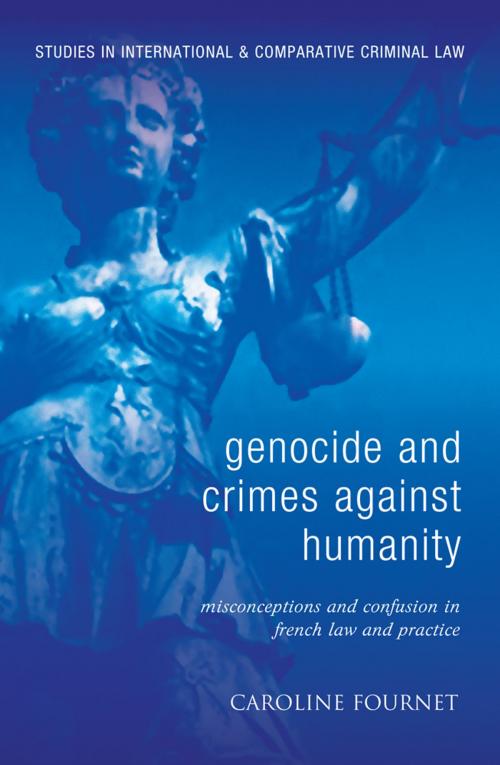Genocide and Crimes Against Humanity
Misconceptions and Confusion in French Law and Practice
Nonfiction, Reference & Language, Law, International, Criminal law| Author: | Professor Dr Caroline Fournet | ISBN: | 9781782250708 |
| Publisher: | Bloomsbury Publishing | Publication: | January 31, 2013 |
| Imprint: | Hart Publishing | Language: | English |
| Author: | Professor Dr Caroline Fournet |
| ISBN: | 9781782250708 |
| Publisher: | Bloomsbury Publishing |
| Publication: | January 31, 2013 |
| Imprint: | Hart Publishing |
| Language: | English |
This book explores the ambiguities of the French law of genocide by exposing the inexplicable dichotomy between a progressive theory and an overly conservative practice. Based on the observation that the crime of genocide has remained absent from French courtrooms to the benefit of crimes against humanity, this research dissects the reasons for this absence, reviewing and analysing the potential legal obstacles to the judicial use of the law of genocide before contemplating the definitional impact of this judicial reluctance and the consequent confusion between the two crimes. Whilst it uses the French law of genocide and related case law on crimes against humanity as its focal points, the book further adopts a more general standpoint, suggesting that the French misunderstandings of the crime of genocide might ultimately be symptomatic of a more widespread misconception of the crime of genocide as a crime perpetrated against 'a group'.
This book explores the ambiguities of the French law of genocide by exposing the inexplicable dichotomy between a progressive theory and an overly conservative practice. Based on the observation that the crime of genocide has remained absent from French courtrooms to the benefit of crimes against humanity, this research dissects the reasons for this absence, reviewing and analysing the potential legal obstacles to the judicial use of the law of genocide before contemplating the definitional impact of this judicial reluctance and the consequent confusion between the two crimes. Whilst it uses the French law of genocide and related case law on crimes against humanity as its focal points, the book further adopts a more general standpoint, suggesting that the French misunderstandings of the crime of genocide might ultimately be symptomatic of a more widespread misconception of the crime of genocide as a crime perpetrated against 'a group'.















